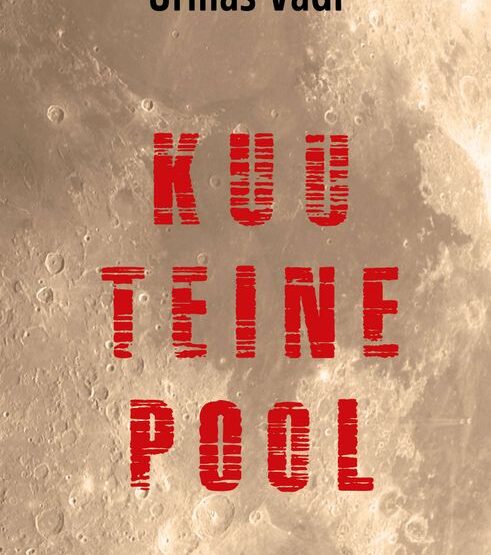Ervin Õunapuu (born in 1956) is a Renaissance man by nature, both in life and in his work. It would be a hard task to enumerate everything he has been interested in. The Tartu Art School provided him with the skills of an artist, and he has produced water colours and oil paintings; he is one of the most sought-after artists in theatre and in film. In co-operation with Toomas Saarepera and Toomas Hussar he has written several plays; together with Toomas Hussar several film scripts; and if all that were not enough, an original Estonian feature film Desert Moon (Kõrbekuu) had its premiere in late February. The scriptwriter, artist and film director – Ervin Õunapuu.
And in addition, literature. Besides plays written together with someone else, his literary debut was the novel Olivia. Masterclass which was published in 1996. The debut turned out remarkably powerful, attracted quite a lot of attention. The novel has already been made into an opera and a play. The critic Linnar Priimägi has said: “If at some point somebody would want to find reasons for the prominence of prose in Estonian literature in the mid-1990s, he cannot but name Ervin Õunapuu’s debut novel as one of them. It is one of those books where the world outlook of contemporary men is presented in a form which corresponds to the three main requirements of classical art: integrity (integritas), proportionality (consonantia) and clarity (claritas).”
The characteristic features of Ervin Õunapuu’s writing are his exhuberant, almost volcanically seething (bubbling?) fantasy, enormous joy of plotting (spinning a yarn?), an ability to create eccentric characters with scanty (modest) means, abundance of detail and visuality. Olivia is actually a novel of episodes of a sort consisting of separate short stories or anecdotes. It is a peculiar variation on the theme of the Eternal Jew where God does not allow the main character Olivia to die, but tosses her around, through various lives, and has her meet different men (Lenin, Röntgen, Caspar David Friedrich, Karl Lagerfeld etc.) who have become maniacs because of their urge to create and perceive. The deeper content of the novel is man’s revolt against God – a revolt that cannot be won because the rules of the game are laid down by God. The novel thus ends in resignation, in admitting that man is doomed.
After his debut novel, Ervin Õunapuu has published short stories in various magazines and his first collection of short stories, Estonian Gothic (Eesti gootika), should come out this year. When Olivia was timeless and global, then Estonian Gothic contains horror stories that really function only in specific Estonian situation (circumstances ?). The expression ‘specific Estonian situation’ should be naturally taken cum grano salis, because here too Õunapuu has not been able to restrain his passion for telling stories and fantasising. It is a far cry from conventional realism. A good example here is the short story Little Lilli from Noarootsi (Väike Lilli Noarootsist) that earned its author the prestigious Fr. Tuglas short story award. It is a story, told with sardonic sympathy, about a man who despite being depicted only superficially is still recognisably Lennart Meri, president of the Republic of Estonia. This man then runs his car over a poor little mentally handicapped girl who thinks she is a rat…
Domestic matters (Kodused asjad), the story presented here also belongs in the collection Estonian Gothic.



